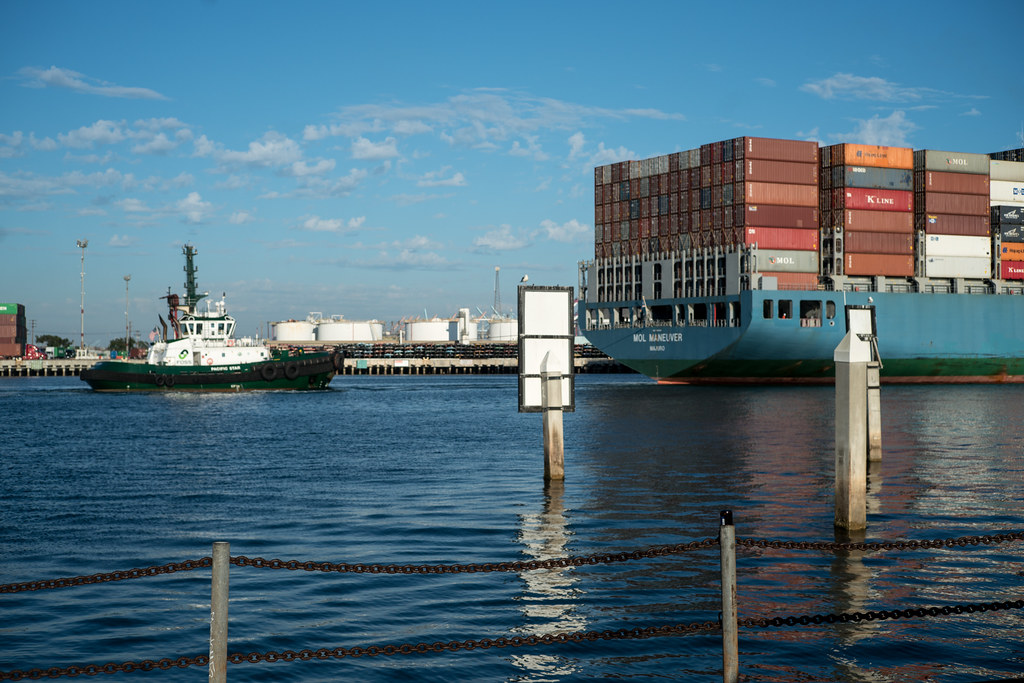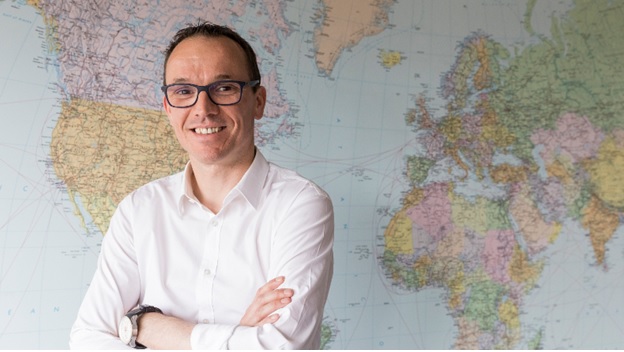Port of Los Angeles adopts $1.5 billion budget for 2020/21
The Port of Los Angeles, North America’s leading container seaport, has adopted a $1.5 billion budget for Fiscal Year 2020/21. The port said the budget was based on expectations of slower cargo volumes in the near term and a continued slowdown in the worldwide economy, due to market uncertainties related to the COVID-19 pandemic and the lingering impacts from the 2019 trade war. “Given the unprecedented issues facing the world today and the immediate impact they have had on the economy, we are taking a decidedly conservative approach to formulating this year’s Harbor Department’s budget,” said Jaime Lee, President of the Los Angeles Harbor Commission. “To best manage through these uncertain times, we focused this year’s revenues and expenditures on the port’s most urgent priorities—keeping the supply chain moving and investing in port infrastructure that will assure our competitiveness over the long term,” said Marla Bleavins, the Port’s Deputy Executive Director of Finance and Administration, and Chief Financial Officer. With cargo volumes projected to be relatively soft through the first six months of FY 2020/21, the approved budget forecasts that cargo volumes will decrease by approximately 15.6% over the previous fiscal year’s adopted budget to slightly over 7.9 million TEUs. The budget also projects a corresponding year-over-year decrease of 7.9% in operating revenues, with projected receipts totalling $460.1 million. Operating expenses are forecast at $277.8 million. (Credits: www.offshore-energy.biz)

Vole au vent back in Halifax for Siemens Gamesa kit
The Siemens Gamesa turbine components destined for the Coastal Virginia Offshore Wind (CVOW) demonstration project are being loaded onto Jan De Nul’s jack-up vessel Vole au vent in the Port of Halifax, Canada. The vessel first departed from Canada to the project site offshore Virginia on 20 May, carrying the monopiles and transition pieces. After installing both foundations, Vole au vent returned to Halifax. The jack-up is expected to have one more trip to complete the installation. The 12 MW CVOW demonstration project, located some 43km off the coast of Virginia Beach, is being developed by Ørsted and the U.S. Dominion Energy. The two Siemens Gamesa 6 MW turbines are expected to provide the operational, weather, and environmental experience needed for the 2.6 GW development in the adjacent 112,800-hectare lease site, expected to be operational by 2026. (Credits: www.offshore-energy.biz)
The UK’s Oil and Gas Authority (OGA) has granted extensions to Egdon Resources for P1929 and P2304 licences offshore the UK. Oil major Shell farmed into the two licences in late January. Namely, it agreed to acquire 70 per cent stakes in both licences. Egdon’s UK subsidiary would retain the remaining 30 per cent interests. Shell will also be appointed as the licence operator. OGA granted extensions for the P1929 and P2304 licences, which contain the Resolution and Endeavour gas discoveries respectively, to Egdon until 31 May 2020, subject to securing a farm-in agreement by 31 January – a condition fulfilled by the Shell farm-in. The other condition was demonstrating that the licensees were on track to deliver a future program of 3D seismic data acquisition across both licences. With both conditions now fulfilled, Egdon said on Monday that the initial term of the licences shall be extended to 31 May 2024 with amended work obligations. Namely, 400 square kilometres of 3D seismic must be acquired in P1929 and P2304 by 31 May 2021 or the operator will be forced to relinquish the licences. Also, one well in either P1929 or P2304 must be drilled to a depth of 1,700 metres true vertical depth subsea (TVDss), or 75 metres below the Base Permian Unconformity by 30 November 2022. (Credits: www.offshore-energy.biz)
Connector Subsea Solutions acquires Isotek Oil and Gas
Connector Subsea Solutions (CSS) has completed the acquisition of Isotek Oil and Gas. The acquisition adds Isotek’s remote welding technology to CSS’s existing range of subsea pipeline repair capabilities which are primarily focused on mechanical clamp and connector pipe joining solutions. The Isotek workforce which numbers 15 people is transferring over to CSS with immediate effect. Isotek, in partnership with CSS, has been a key supplier and development partner for Equinor’s Pipeline Repair System since its inception in the early 1990s. This collaboration developed control systems and equipment for the subsea repair and installation spread, and fully remote welding equipment for hot tappin. A number of tie-ins have also been completed, along with the development and qualification with DNV-GL. In 2019 the partnership celebrated the first fully remote hyperbaric welded tie-in which was completed on a 36” pipeline for the Johan Sverdrup field in Norway using equipment and technology developed and supplied by Isotek. (Credits: www.offshore-energy.biz)
NAMEPA Launches First Holistic CSR/ESG Program Designed for the Maritime Industry Cargill Qualifies for the First “Maritime Sustainability Passport”

June 8, 2020 On the occasion of World Oceans Day, NAMEPA (North American Marine Environment Protection Association) has launched the first known comprehensive CSR/ESG (Corporate Social Responsibility/Environment, Social, Governance) program designed expressly for the maritime industry, with its corresponding Maritime Sustainability Passport” (MSP) awarded to companies, organizations and individuals who meet the requirements of the platform. The program encompasses the three pillars of CSR/ESG corporate governance, environment and the human element. The launch was designed to coincide with World Oceans Day. The first company to qualify for NAMEPA Maritime Sustainability Passport is Cargill.Its ocean transportation business successfully completed all three phases of the program, including supplying supporting documentation for its claims. Their submission was then evaluated by a team of assessors to determine whether they met the criteria of the CSR/ESG program and were eligible to receive NAMEPA MSP Certificate and Seal.Cargill successfully demonstrated to the assessors their eligibility to qualify for the Maritime Sustainability Passport. The maritime industry is rapidly recognizing the importance of demonstrating its commitment to sustainability stated NAMEPA Chairman Joe Hughes of the American Club.NAMEPA identified the need to provide the industry with a standard guideline of expectations relating to a company’s efforts in CSR/ESG. We are pleased to provide this tool for the industry to support its efforts towards sustainability. Cargill has made sustainable shipping a priority and an integral part of our business strategy,” remarked Jan Dieleman, Business Leader for Cargill Ocean Transportation.We are working with partners and other industry leaders to accelerate progress across the maritime sector, with a particular focus on decolonization. Our industry is changing at an unprecedented rate, with societal demands driving regulatory requirements driving technological change observed NAMEPA Co-Founder/Executive Director Carleen Lyden Walker. With an operating climate that is increasingly transparent, industry needs to match that transparency and demonstrate its commitment to core values contained in the CSR/ESG program. The program contains a set of standards plus a toolkit for achieving them.Completion of the program results in the issuance of NAMEPA&rsquo Maritime Sustainability Passport, which is renewed annually.

